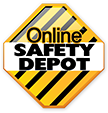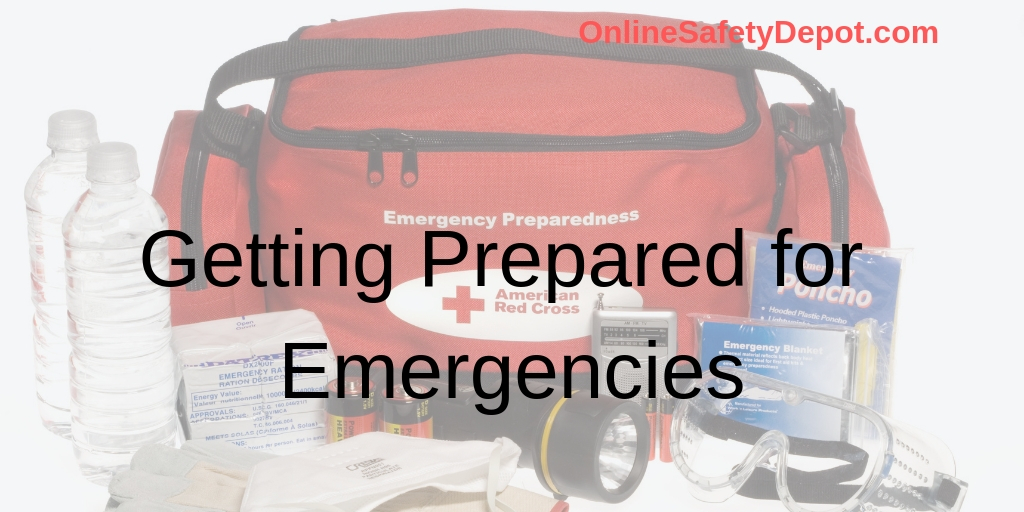Getting Prepared for Emergencies
People who are prepared for a wide variety of emergency situations generally are less stressed, enjoy life more, and are more confident about their overall circumstances. They are proactive and prepare for the unexpected, as much as possible.
Various groups, such as community, church and government organizations frequently offer training programs to help educate people about local resources that are available during emergencies. While living in Virginia, My Father-in-Law was certified in a 32-hour CERT (Community Emergency Response Team) training program sponsored by county officials. This was “post 9/11” and the training was excellent. Knowledge, preparation and organization are key to saving lives in emergency and in non-emergency situations. Preparation quells fear and builds confidence.
Initially, preparing for disasters may seem overwhelming. But like most accomplishments, success comes one step at a time. Begin at home where you can accomplish the most and where people most important to you live. Everyone needs food and basic toiletry items. Build and maintain an emergency supply that includes the following: Three-month supply of food that is part of your normal diet, medication and first aid supplies, drinking water, clothing and bedding, financial reserves, important documents, and ways to communicate with family following a disaster as well as contact information. These and other valuable recommendations can be found at: www.providentliving.lds.org.
This website includes a multi-step guide that helps identify likely disasters and communication methods, how to gather critical information and outline assignments, encourage cooperation, etc. Communication is very important. Learn to expect the unexpected and plan for disruptions. People may have special needs, and others may be traumatized from the disaster. Learn how to triage patients. Special equipment (wheelchair, oxygen, medications), skills and communication resources may be life-saving. I learned from CERT that situations and conditions post-disaster can be just as dangerous as during the disaster itself; for example, gas leaks and hot electrical wires. Plan well before an emergency, follow-through after the event, remain calm, be careful and use common sense all the time. People under duress often act differently.
Plan accordingly. For example, My brother in law and his family live in Gig Harbor, which is basically a peninsula in NW WA. If an earthquake strikes, he has basically two exit routes, one southward into the bumper-to-bumper Tacoma/Seattle area, and the other northward route into a rainy, wet woodland area. What they pack will differ depending upon their exit route. If the disaster is limited to your house alone, identify a common area to meet such as your neighbor’s lawn, and if the disaster separates family members across state lines, identify a distant relative as a contact person. Plan accordingly, BUT PLAN.
At some point immediately following a disaster, you may need to take charge at least until professional help arrives. A coordinated effort made by many informed individuals working together is far more effective than the combined efforts of many individuals working alone. Quickly gather pertinent facts and if possible, write them down. Assess the situation, determine priorities, respond accordingly. Quick (not rash) action can save lives. Stop excessive hemorrhaging when possible. Triaging basically means identifying/tagging people with life threatening injuries with red, and others with green or a different color. Only move patients if necessary. Assign someone to communicate/text situation to local authorities. Time permitting, provide clothing to people who are in shock and comfort to those who have been traumatized. When professional help arrives, report and help where needed.
Other resources to consider when building an emergency supply kit can be found at: www.ready.gov. Through its FEMA (Federal Emergency Management Agency) the government encourages Americans to take some simple steps to prepare for and respond to potential emergencies, including natural disasters and terrorist attacks. It asks individuals to do three things: Get an emergency (72 hour) supply kit, make a family emergency plan, and be informed about different types of emergencies.
Some situations require that we think long term, as in weeks, months or years. Get an education and secure employment. Maintain good financial practices (especially following first paying job). “Live within your means, get out of debt and stay out of debt” has been a good guideline. One is never free until he is out of debt and paying himself.
Other long-term practices include storing food and water for months to years. Only store food that your family will eat and then eat what you store on a regular basis to help rotate the food. Store in a cool, dry area. Dehydrated foods (grains) generally store longer but also require adding water to prepare. Water is the one thing we need the most to survive and it can be a challenge to store. No water coming out of a faucet is sterile and must be treated if it is to be stored for months. If treating with bleach, realize it has an expiration date and hence purchase new Clorox Regular Liquid Bleach (with no added ingredients, such as phosphates, soaps, perfumes, dyes, etc.) immediately before treatment. The active ingredient, sodium hypochlorite kills bacteria. Add ¼ teaspoon or 16 drops of bleach for each gallon of cloudy water (1/8 teaspoon or 8 drops per gallon if water is clear) and let it stand for 30 minutes or longer before use. Store the disinfected water in a clean, disinfected container with a tight cover.
If you do not live in a high-risk area (flood plain, tornado zone), prepare to stay in your home without power, heat and water. Be prepared to cook without electricity. Have flashlights and batteries. Mentally walk-through your daily family needs. Have the necessary medical supplies and a first aid kit. It is always a challenge to keep these in date. Learning CPR and basic first aid is a great asset. It has also been said that having carpentry and mechanical tools and a working knowledge of how to use them will also be a great asset in times of disaster.
Those who are prepared, will have a peace of mind: “If ye are prepared ye shall not fear.” (Doctrine and Covenants 38:30)

